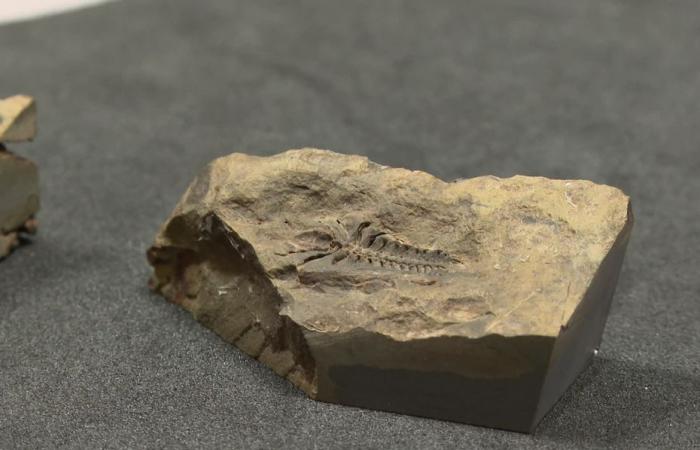
The team of researchers from the University of Poitiers discovered a trilobite, a marine “Pompeii”, dating back 515 million years in Morocco. Its state of conservation is a major advance for science. These fossils offer new perspectives on the anatomy of arthropods (very ancient animals).
This is a major discovery. The team of researchers from the University of Poitiers, led by professor and geologist Abderrazak El Albani, revealed the existence of two new species of trilobites, the best preserved ever discovered.
These animals were on earth hundreds of millions of years ago. However, the traces studied until now by paleontologists did not allow us to completely understand the existence of these small organisms. This time, researchers could finally learn more about the internal anatomy and soft parts of these animals that preceded us.
These discoveries were made thanks to excavations carried out by the team in Morocco, near Aït Youb, between 2016 and 2019. From these excursions, the researchers brought back rocks to study. “Initially, we had just one specimen. But what put us on the trail was when I realized that the animal had fossilized in volcanic rock. I immediately made a connection with Pompeii and I pushed the accelerator so that we go back there, that we go deeper”contact Abderrazak El Albani.
The rocks were then observed using a C-ray machine. The team, an international consortium made up of “best specialists”, thus put his finger on something incredible: “a unique state of conservation in the world”.
“These results will allow us to better understand these fossils, they are very well-known fossils, but not at this level of detail, this time we have the internal morphology and all the soft tissues. It will be a sort of reference for trilobites on which researchers will be able to base themselves,” explains Arnaud Mazurier, research engineer in the team at the University of Poitiers.
These volcanic ash rocks hid incredible discoveries for science.
•
© France Télévisions
The arthropod fossils discovered in these rocks present unprecedented anatomical details. They were found petrified in their last posture, frozen during a volcanic eruption in Morocco.
And if these results had never been obtained before, Professor Abderrazak El Albani is categorical, it is because “no one was interested in volcanic rocks.”
However, according to information provided by the University of Poitiers, “volcanoes located at the boundaries of tectonic plates are known for their large-scale, explosive eruptions, which can generate several tens of km3 of material. These eruptions can trap present life almost instantly, thus preserving under their ashes the evidence of entire civilizations .”
New perspectives for research
In fact, in the case of this discovery, “the specimens disappeared, burned by the heat of the volcanic ash when the rock was formed”, indicates Arnaud Mazurier, but this phenomenon created a sort of mold in the cavities of the solidified ashes. Using this data, the researchers were able to fill in the areas left empty and reconstruct the animal in question in 3D.
With over 22,000 species discovered, trilobites are arguably the best-known fossil invertebrates.
•
© France Télévisions
These rocks have allowed the smallest details to be preserved, including the hairs and spines along the appendages. Arnaud Mazurier analyzes what this species must have been like based on the images taken: “The majority of the spines, as we can see, are rather in the anterior part, that is to say in the direction of the head. In fact, it will act like a conveyor belt to take the food to the level of the mouth.”
It is a snapshot of the specimen’s life, it has been frozen as in Pompeii. It is in position, it is not distorted, it is articulated, we see extremely fine details. It is truly an extraordinary specimen.
Arnaud MazurierResearch engineer at the University of Poitiers
Arnaud Mazurier was able to contribute to the discovery of tribolite thanks to this C-ray machine which allows you to see the inside of the stones.
•
© Estelle Farge
“We struggled, we suffered but the result is absolutely magnificent,” insists Abderrazak El Albani who expresses a lot of pride in the work accomplished. “I am also very proud for Morocco, and Africa in general.”
Africa has an absolutely exceptional geological heritage. This continent allows us to have an incredible window on life and is full of riches that tell us about our origins. So for me, this discovery comes at the right time, to show once again how much we need the international and not to withdraw.
Abderrazak El AlbaniGeologist and professor at the University of Poitiers
As a reminder, the French-Moroccan geologist Abderrazak El Albani is the researcher who discovered the oldest traces of life on earth in 2008, in Gabon. His research has highlighted complex life forms that appeared 2.1 billion years ago.





